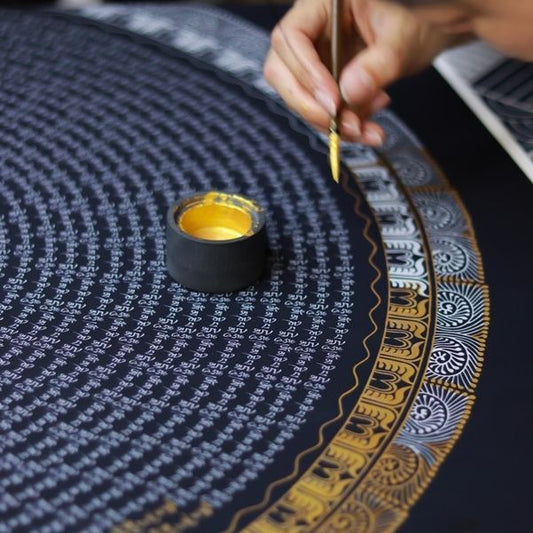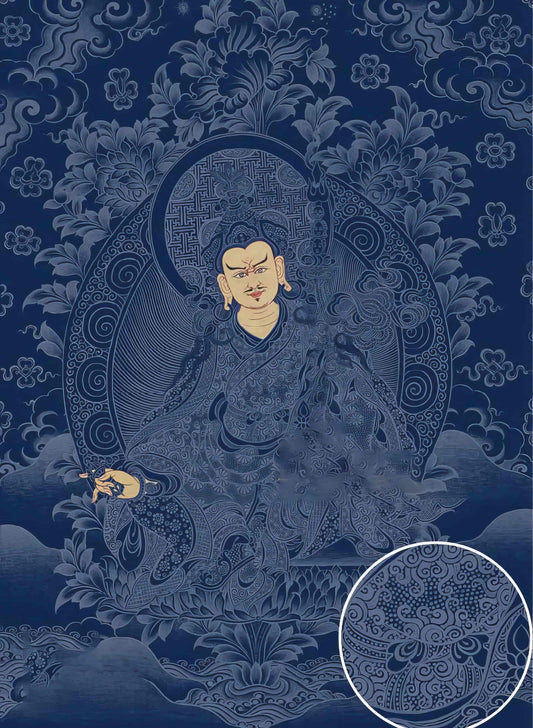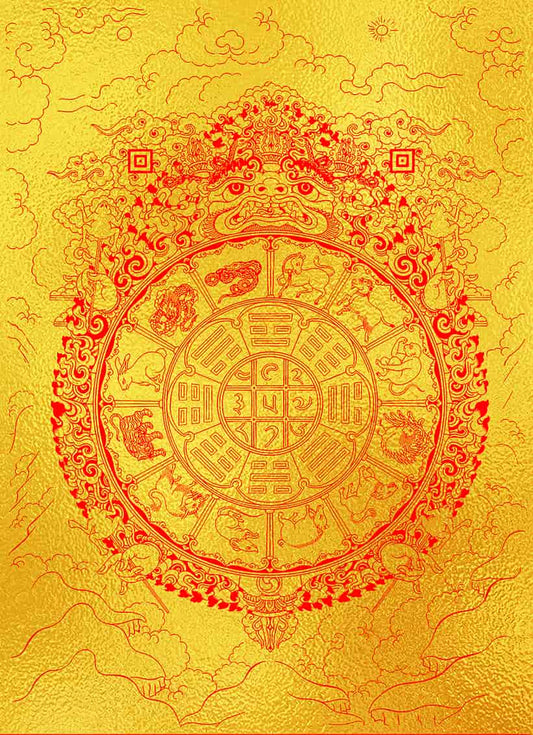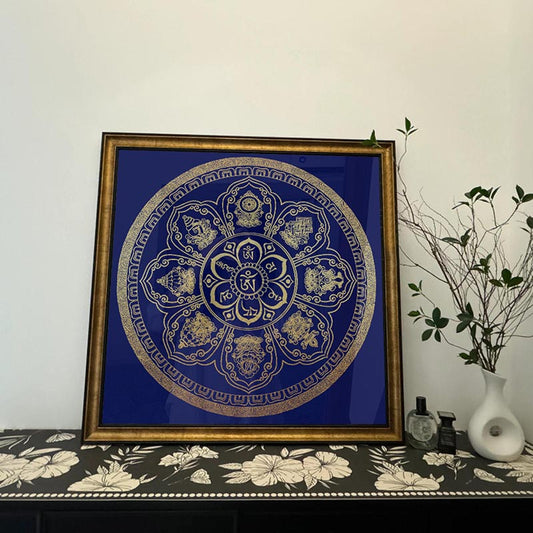The Subtle Resonance of Tibetan Art Prints
The Subtle Resonance of Tibetan Art Prints
Imagine a realm where pigments tell stories—where each brush stroke whispers the wisdom of centuries. That’s the world of Tibetan art prints, a window into a heritage as vast as the Himalayan sky. As we turn our gaze toward these art prints, we're not just seeing pieces to adorn our homes; we're stepping into a living tradition, deeply rooted in Tibetan Buddhist philosophy and spiritual practice.
Thangkas, the traditional Tibetan scroll paintings from which these art prints are often derived, are marvels of meticulous craftsmanship and spiritual devotion. Originally, thangkas served as important teaching tools and offerings to the divine. Hand-painted with a precision that few can master, they're imbued with natural pigments—crushed minerals and plants—that echo sacred Earth. In contrast, Tibetan art prints, while lacking the tactile weight of hand-painted thangkas, carry the essence of these traditional artworks into our everyday lives, making spiritual and cultural connection more accessible.
One of the fascinating things about Tibetan art prints is their ability to convey symbolic intricacies. These prints often depict deities, mandalas, and life scenes that are rich with symbolic meaning. Consider the image of Avalokiteshvara, the Bodhisattva of Compassion. An art print of this deity might show him with multiple arms, each holding a symbolic item—a lotus, a mala, a dharma wheel. These are not just embellishments; they are narrative elements, each with a story to tell. For instance, the lotus represents purity and spiritual awakening, while the dharma wheel symbolizes Buddha’s teachings. These symbols invite viewers to delve deeper, perhaps prompting reflection on one's own path.
Moreover, Tibetan art prints offer a fascinating lens into the traditions of spiritual mentorship and artistic training. Historically, thangka artists underwent rigorous apprenticeships, often lasting a decade or more. Their training was akin to a spiritual journey, involving both technical skill and deep meditative focus. Even today, this lineage continues, with artists pouring their hearts into each print, ensuring that every line and color resonates with authenticity and intent. In this way, each print becomes not only a visual experience but also a bearer of the spiritual rigor of its creator.
While Western art might often emphasize individual expression, Tibetan art speaks to us of continuity and interconnectedness. As you explore Tibetan art prints, allow yourself to be drawn into this network of stories, symbols, and spiritual journeys. They are anchors, inviting us to pause and reconnect with the deeper rhythms of life.
In the ever-evolving dialogue between tradition and modernity, Tibetan art prints stand as vibrant testaments to cultural resilience. They remind us that even as shadows change through time, the light of heritage remains, illuminating the path forward with beauty and grace.





